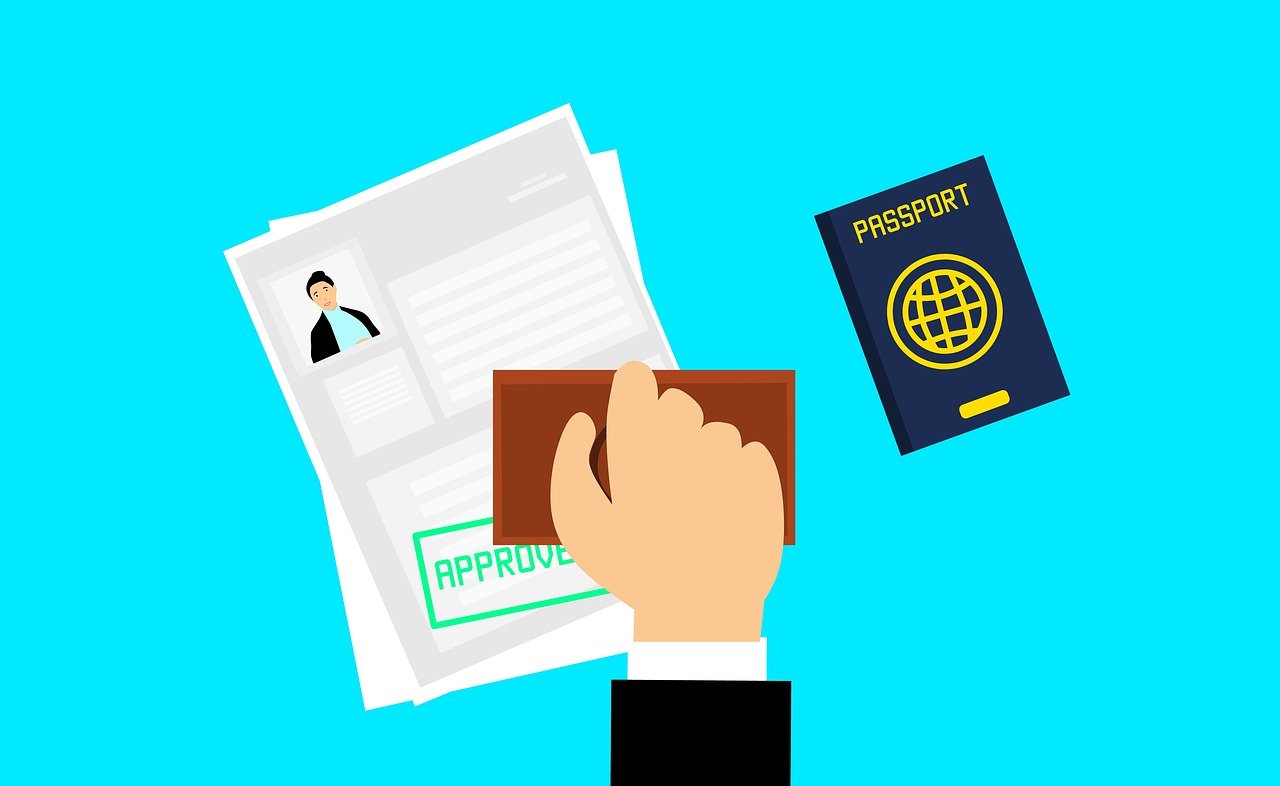
By: Eliza Collison
As the COVID-19 pandemic looms, the immigration system continues to experience backlogs.[1] Court closures means individuals with pending immigration cases, such as those facing removal orders, will not have a hearing any time soon.[2] Immigration attorneys and federal employees are grappling with remote work and their own health.[3] The closures of consulates abroad and growing travel restrictions will put visas on hold.[4]
There is an issue that existed even prior to the COVID-19 crisis unfolded which the crisis will exacerbate. Applicants to the H-1B visa program for highly skilled foreign workers is backlogged with unprecedented delays the past five years.[5] In 2019, hundreds of H1-B workers, temporary skilled workers coming to the United States, and their spouses sued USCIS over delays in visa processing times.[6] In 2015, DHS passed regulations that authorized spouses of H1-B workers to gain work authorization.[7]
Processing delays for the H1-B in particular increased forty-six percent between 2017 and 2019[8] and the H-4 visa for dependent spouses seeking work authorization experienced similar delays.[9] Many plaintiffs drop these suits because the visa is approved during the course of litigation.[10] In order to address this issue, USCIS needs to implement a long-term solution to address these processing delays instead of the short term solution of relying on lawsuits to be dropped while visas are processing.[11]
Delays in visa processing create uncertainty and frustration for business sectors that rely heavily on H1-B workers, particularly the tech and healthcare industries.[12] The healthcare staffing company MedPro, sued the U.S. Department of Homeland Security and U.S. Citizenship and Immigration Services (“USCIS”), alleging an “untenable” delay in deciding more than 150 H-1B petitions.[13] The company filed the lawsuit to compel USCIS to issue process the pending visas within fifteen days of the court’s judgement.[14] Many H-4 visa holders are high skilled workers and unable to work while their visas are pending.[15] This has a disparate impact on female workers because the majority of H-4 visa holders are women.[16] The current administration discussed discontinuing the H-4 visa entirely, which would increase insecurity.[17]
As of March 2020, USCIS does not appear to have a long term solution for the visa backlog issue. When the crisis has lifted, USCIS must implement a long-term solution in order to offer peace of mind to the industries which rely on these visas most. While the COVID-19 pandemic takes precedent, a long-term solution to the visa backlogs does not appear to be on the horizon.[18] As of March 18, USCIS closed its offices and suspended in-person services.[19] What the COVID-19 crisis does offer, however, is an opportunity for USCIS to be flexible in order to avoid further delays.[20] When the COVID-19 pandemic ends, USCIS can continue to be flexible to lessen the H1-B and H-4 visa backlog.
[1] Sarah Jarvis, Coronavirus: The Latest Court Closures And Restrictions, Law 360 (March 12, 2020), https://www.law360.com/aerospace/articles/1252836/coronavirus-the-latest-court-closures-and-restrictions.
[2] Id.
[3] Natalie Rodriguez, How A Novel Virus Is Raising Novel Issues For Attorneys, Law360 (March 17, 2020), https://www.law360.com/articles/1254082/share?section=corporate.
[4] Ethan Baron, H-1B: Premium Processing Suspended for Upcoming Visa Application Season, The Mercury News (March 17, 2020), https://www.mercurynews.com/2020/03/17/h-1b-premium-processing-suspended-for-upcoming-visa-application-season/.
[5] Jason Boyd & Greg Chen, AILA Policy Brief: USCIS Processing Delays Have Reached Crisis Levels Under the Trump Administration, AILA (Jan. 30, 2019), https://www.aila.org/advo-media/aila-policy-briefs/aila-policy-brief-uscis-processing-delays.
[6] Issie Lapowsky, ‘God is Really Testing us’: Immigrant Tech Spouses Sue the Administration over Visas, Protocol (March 2, 2020), https://www.protocol.com/delays-h1b-visa-holders.
[7] See generally Employment Authorization for Certain H–4 Dependent Spouses, Fed. Reg. 10,284 (Feb. 25, 2015) (to be codified at 8 C.F.R. pt. 214 & 274a) (amending the Department of Homeland Security Regulations to extend employment authorization to dependent spouses of H1-B visa holders).
[8] Jackson Lewis, H-1B Visa Processing Delays Underscored by Extraordinary Need for Healthcare Workers, Nat’l L. Rev. (Feb. 12, 2020).
[9] Lapowsky, supra note 6.
[10] Id.
[11] Id.
[12] Lewis, supra note 8.
[13] See Mgmt. Health Sys v. United States Dep’t of Homeland Sec., Case 1:20-cv-00330, 3 (D.D.C., Feb. 2, 2020) (noting the company had been waiting 311 days for USCIS to adjudicate the visas).
[14] Id.
[15] Lapowsky, supra note 6.
[16] Id.
[17] Stuart Anderson, Court Spotlights Trump Plans to Stop H-1B Spouses From Working, Forbes (Nov. 13, 2019), https://www.forbes.com/sites/stuartanderson/2019/11/13/court-spotlights-trump-plans-to-stop-h-1b-spouses-from-working/#55f0acc3754c
[18] Jarvis, supra note 1.
[19] United States Citizenship & Immigration Servs., USCIS Response to the Coronavirus Disease 2019 (COVID-19), https://www.uscis.gov/about-us/uscis-response-coronavirus-disease-2019-covid-19 (last updated March 25, 2020).
[20] See, e.g. Business Immigration and Coronavirus: Latest Announcements from USCIS and DOL, Nat’l L. Rev. , https://www.natlawreview.com/article/business-immigration-and-coronavirus-latest-announcements-uscis-and-dol (March 23, 2020).

